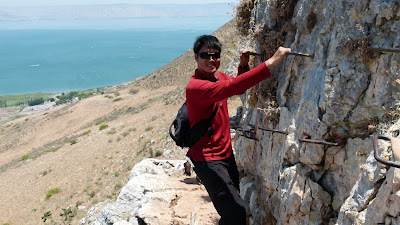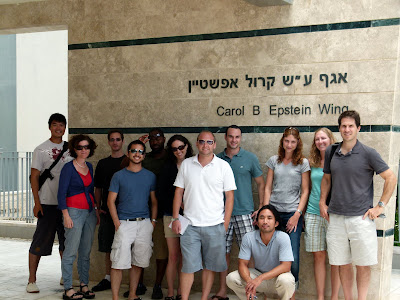It's a bittersweet moment as today marks our last day in Israel. On the one hand we're excited: we came here to build businesses and learn about the Startup Nation in person. Just a few days ago we pitched our ventures in what was truly the culmination of this experience. So as we leave Israel, we know that our departure signifies the accomplishment of the task that we set out to complete. We can all look back on the last two months and know that we got so much from this experience. We took an idea and turned it into a business, which is no small feat. Throughout the process, we became master of the elevator pitch, market sizing gurus and all too well acquainted with PowerPoint's features.
But our time here in Israel means so much more than the business skills, professional development and important people we met. Two months ago, twelve MBA's from four different universities arrived in Israel, many of us as total strangers. We spent nearly every moment over the course of the ensuing 8 weeks together, working, playing and living. When we board our respective airplanes today at Ben Gurion Airport we will never again be strangers because we shared together the experience of a lifetime. From waking up to this beautiful view out our window:
to sharing our professional and personal goals on long bus drives across the country to visit a company or attend an industry conference, to the amazing Masada sunrise:
we have all grown together in ways we never though imaginable.
At the beginning of the trip, Asher Epstein explained his philosophy on expectations: "set low expectations and over-deliver." Well, Asher, over-deliver doesn't even begin to describe it. This has truly been the experience of a lifetime. Every single one of has has grown professionally and personally, we've seen and done some amazing things, and if nothing else we are walking away with a deep appreciation for this beautiful country.
So long Israel. It's been wonderful, and I'm sure it won't be the last time.



































